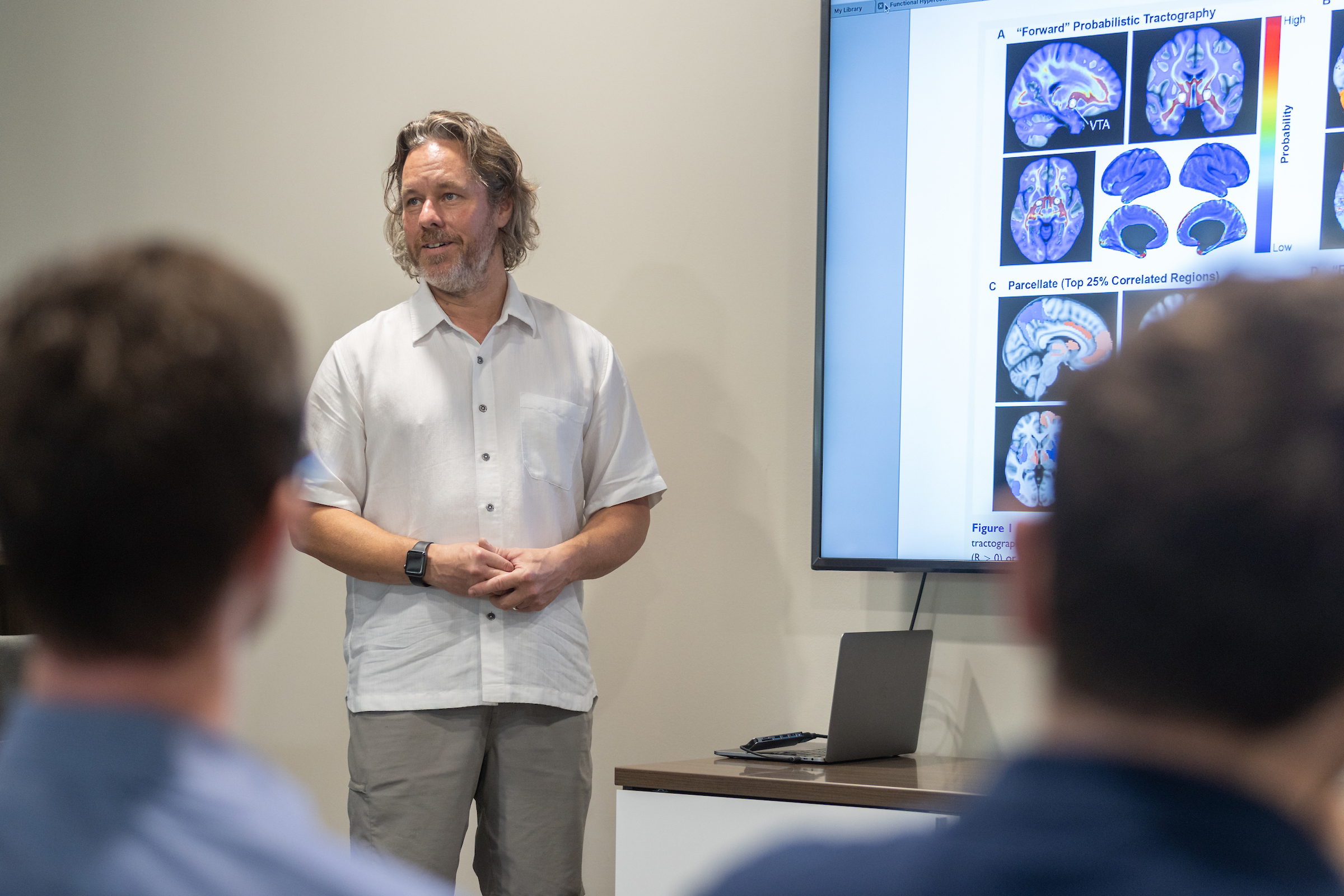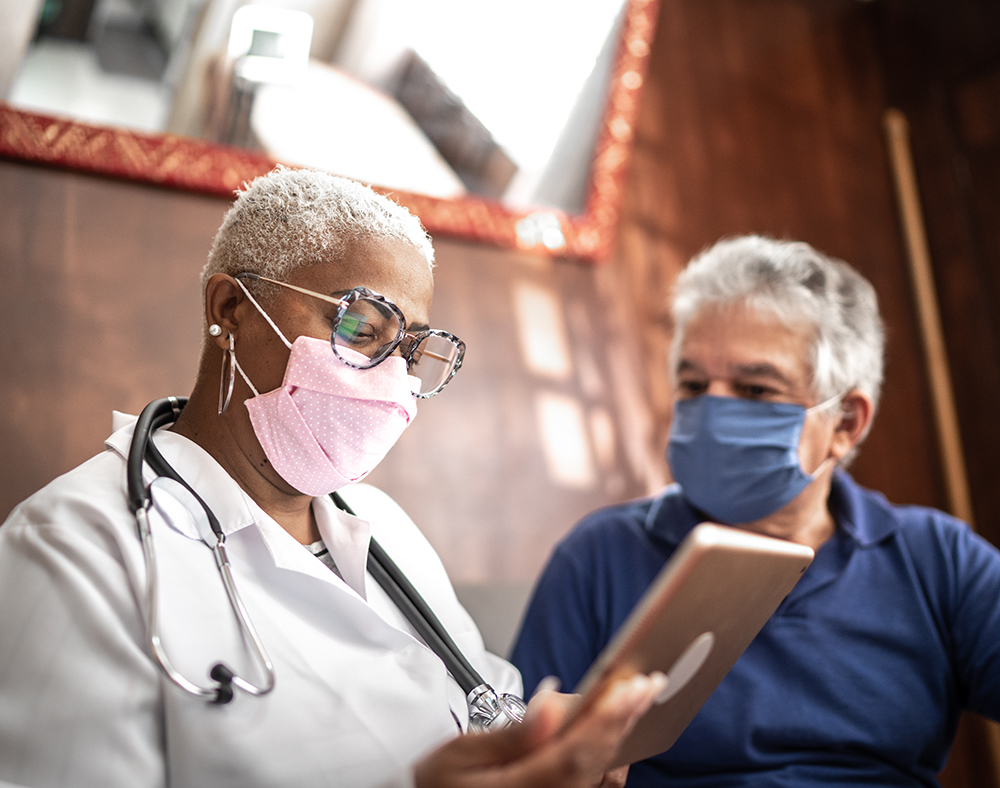By Michelle Jaffee
The neurotechnology lab of Christopher Butson, Ph.D., is the newest research space to launch within the Norman Fixel Institute for Neurological Diseases at UF Health, a world-class clinical care and research facility dedicated to providing the most advanced care for Parkinson’s disease and other neurodegenerative disorders.

Butson, a biomedical engineer who works on the development of new approaches to electrical brain stimulation to treat movement disorders and other neurological conditions, will oversee the new lab as a UF professor of neurology and Fixel Institute endowed chair of neurotherapeutics. He joined UF from the University of Utah.
Butson’s goals include bringing improved, evidence-based practices to the field of neuromodulation and expanding current treatment options for patients who have traditionally lacked access, perhaps because they live far from a big city or perhaps their type of brain disorder is rare. In addition to deep brain stimulation, Butson’s lab investigates techniques including transcranial magnetic stimulation and cortical stimulation.
“My lab does translational research, taking biomedical engineering principles and practices and using those to develop novel therapies for underserved patient populations,” Butson said. “We sometimes focus on huge public health problems, like depression, and sometimes we aim at rare diseases that traditionally get little attention to develop new therapies.”
Ongoing projects in Butson’s lab are aimed at Parkinson’s, Tourette syndrome, neuropathic pain, epilepsy and traumatic brain injury. “We’re looking not just at whether the therapy has improved the symptoms of their disorder but more broadly, such as did it enable them to go back to work, and did it improve their quality of life and that of their caregiver?”

Butson’s most recent publication, co-authored by Fixel Institute Executive Director Michael S. Okun, M.D., examined whether deep brain stimulation could be successfully managed at home by a home health nurse following surgical implantation; the study concluded it could be. The results, published in JAMA Neurology in June 2021 during a vast expansion of telemedicine and new care models due to the COVID-19 pandemic, could open the door to new ways of delivering care for people with Parkinson’s who receive DBS surgery, Butson said.
“Dr. Butson is a next-generation thinker and researcher, and his laboratory melds biomedical engineering, science and medicine to transform how we approach neurological diseases,” said Okun, chair of neurology in UF’s College of Medicine.
A mechanical engineering graduate of the University of Maryland, Butson went on to get a master’s in electrical engineering from George Washington University and a doctorate in biomedical engineering from the University of Utah. He completed postdoctoral training at the Cleveland Clinic and served on the faculty at the Medical College of Wisconsin before leading a research laboratory in the Scientific Computing and Imaging Institute at the University of Utah. He holds 10 patents in the area of neuromodulation, specifically therapeutic and diagnostic brain stimulation.
His expertise will advance the research efforts at the Fixel Institute, where he joins top experts in neurodegenerative disorders, dystonia and concussions who collaborate with teams of neuroscientists at UF’s Evelyn F. and William L. McKnight Brain Institute. The Fixel Institute was established in 2019 with the support of many donors, including the Lauren and Lee Fixel Family Foundation and Tyler’s Hope for a Dystonia Cure.
“Dr. Butson is one of the thought leaders in the fields of bioengineering, neuroscience and neurological diseases,” said Kelly Foote, M.D., co-director of the Fixel Institute and a UF professor of neurosurgery. “His ability to see into the future and innovate for tomorrow has brought great hope for both the development of better approaches and out-of-the-box therapies for neurological diseases.”

